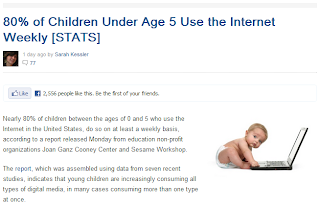Stats and headlines
I have always been a sucker for statistics. I really don't know why. I hated statistics as a subject when I had it in school. I felt the standard deviation and all the mean were knowingly named such. Anyways I like to read about statistics and comparisons. Love infographics the most.
However, I have never liked the way statistics were used to report news. Although I like to read about these, I firmly believe that statistics can be used to prove anything. It just depends on what you want to prove and in which direction you want your argument to go. By definition, statisticians need to be extremely unbiased and detached from the topic they research else the reading are definitely going to end up skewed whether they like it or not. It is even more difficult for readers since we definitely have a preconceived notion of the topic and our bias get in the way of interpreting the data. Unconciously, we choose to derive from it what we want else we trash the whole idea as bogus!
Anyways the reason I jotted on this topic was because of a post I came across on my facebook timeline. The title of the post read "80% of Children Under Age 5 Use the Internet [STATS]". The link that was shared was from an article in mashable.com. I just couldn't resist reading it and took a snap of the title.
Notice that the headline has an added "Weekly" at the end. But this was missing in the original post on facebook giving it a little more wow factor.
As of today the headline of the article has changed. It reads "Children’s Consumption of Digital Media On The Rise [STATS]".
Nor is there mention that the research is only based in US and that too among individuals who have internet access. Those who do not have access are exempt from the statistics.
There is no harm in this piece of news, nor the minor tweak in headline, mostly to get readers to actually read the article. But it could be avoided in the first place and the title could have been the one shown now. All the comments in the article link are also along these lines. But I have only used this case as an example since I had taken a snap of the headline earlier. Also, to note is that the author has been good enough to change the title of the article. Many others would not do that.
I have seen worse cases where newspapers come up with headlines of news items which have no or very little relation to the article that is under it. All these in the name of statistics. Sources are not even mentioned many a times in news articles or when news anchors reel out allegations and sensational news.
However, I have never liked the way statistics were used to report news. Although I like to read about these, I firmly believe that statistics can be used to prove anything. It just depends on what you want to prove and in which direction you want your argument to go. By definition, statisticians need to be extremely unbiased and detached from the topic they research else the reading are definitely going to end up skewed whether they like it or not. It is even more difficult for readers since we definitely have a preconceived notion of the topic and our bias get in the way of interpreting the data. Unconciously, we choose to derive from it what we want else we trash the whole idea as bogus!
Anyways the reason I jotted on this topic was because of a post I came across on my facebook timeline. The title of the post read "80% of Children Under Age 5 Use the Internet [STATS]". The link that was shared was from an article in mashable.com. I just couldn't resist reading it and took a snap of the title.
Notice that the headline has an added "Weekly" at the end. But this was missing in the original post on facebook giving it a little more wow factor.
As of today the headline of the article has changed. It reads "Children’s Consumption of Digital Media On The Rise [STATS]".
Nor is there mention that the research is only based in US and that too among individuals who have internet access. Those who do not have access are exempt from the statistics.
There is no harm in this piece of news, nor the minor tweak in headline, mostly to get readers to actually read the article. But it could be avoided in the first place and the title could have been the one shown now. All the comments in the article link are also along these lines. But I have only used this case as an example since I had taken a snap of the headline earlier. Also, to note is that the author has been good enough to change the title of the article. Many others would not do that.
I have seen worse cases where newspapers come up with headlines of news items which have no or very little relation to the article that is under it. All these in the name of statistics. Sources are not even mentioned many a times in news articles or when news anchors reel out allegations and sensational news.


Comments
Post a Comment